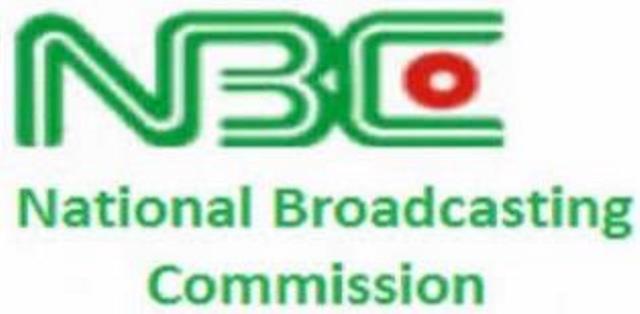Broadcasting
Maximising Mobile App Engagement with Push Notifications

By Olatayo Ladipo-Ajai, Regional Manager: West Africa at Infobip
Mobile apps have become an integral part of our daily lives, offering businesses an incredible opportunity to engage with customers and boost revenue. Among the various strategies available, push notifications have emerged as a powerful means to captivate users throughout their app experience. By aligning your push notification strategy with key business metrics, you can maximise its impact. One effective framework for achieving this alignment is the ‘pirate metrics’ framework, which encompasses acquisition, activation, retention, referral, and revenue.
Acquisition: Grabbing Attention from the Start
Acquisition refers to the phase before a user installs your mobile app. Although there is no direct communication with the user during this phase, it’s crucial to collect data about them for future use. This data might include the source that led the user to the app and advertising content, which can be employed for personalised communication. For example, you can send tailored onboarding messages to new users, guiding them through the app’s features, enhancing user engagement, reducing churn, and setting the stage for long-term retention.
Activation: Turning Users into Active Participants
Activation involves motivating users to complete specific actions, such as creating an account or making their first purchase. Push notifications can be instrumental in achieving this by showcasing the app’s value and providing guidance. Here, you can engage with users by setting up triggered notifications based on user behaviour, nudging them at critical points, and driving higher activation rates.
Retention: Keeping Users Coming Back
Retention is a critical metric, with around 90% of new users churning within the first month after installation. To combat this, mobile developers should track all users who launch the app and reach out to those who don’t. Personalised re-engagement push notifications play an important role in this as by sending messages to dormant users, reminding them of the app’s value, and offering incentives can improve retention rates.
Referral: Amplifying Growth Through Advocacy
Referral is essential for customer acquisition, especially for mobile apps. Well-designed scenarios involving push notifications can encourage users to share information about the app on social media, write reviews, or rate it in stores. Implementing referral programs through targeted push notifications that offer rewards or incentives for user referrals can turn satisfied users into brand advocates, driving organic growth.
Revenue: Monetising User Engagement
Revenue is the ultimate goal, and push notifications can play a crucial role in achieving it. By encouraging users to take actions related to payments or promoting products, you can boost revenue. Sending targeted promotional offers and upsell notifications to users based on their preferences and previous interactions can drive conversions, boost sales, and increase revenue.
Overcoming Data Challenges with a Customer Data Platform
Without a sound central Customer Data Platform (CDP), organisations may encounter significant challenges, including struggling to manage multiple vendors and handling siloed data, resulting in increased costs and a disjointed customer experience. Without a central CDP, businesses may lack the ability to communicate intelligently with their customers, leading to redundant or irrelevant messages. This challenge can easily be resolved by consolidating data and utilising a unified CDP.
Embracing Technological Advancements in West Africa
The technology landscape in West Africa continues to evolve rapidly, with a particular focus on the expansion of mobile apps and social media chat platforms. According to the GSMA Mobile Economy Sub-Saharan Africa Report 2022, West Africa ranked among the top African countries in terms of growth in the technology landscape. This emerging trend highlights the increasing adoption of these types of technologies in the region. The growth in this sector also creates a wealth of opportunities for businesses, highlighting the importance of investing wisely in technology.
The Right Technology Investments for Success
Mobile engagement is now a vital component of any business strategy. With the rise of mobile apps, a well-thought-out mobile engagement strategy is essential to keep customers engaged and loyal to your brand.
To achieve this, businesses need a robust customer engagement solution that includes mobile app messaging capabilities and analytics. Mobile app messaging allows real-time communication with customers, while analytics help track user behaviour and trends to optimise the engagement strategy.
Additionally, a customer data platform (CDP) is essential. A CDP consolidates customer data from various sources, providing a unified view of the customer. This understanding helps businesses personalise their communication and deliver a seamless customer experience across all touchpoints.
A successful mobile engagement strategy requires a comprehensive customer engagement solution with mobile app messaging capabilities, analytics, and a customer data platform. By leveraging these tools, businesses can create a personalised and engaging experience for their customers, driving loyalty and, ultimately, revenue. So, it’s time to harness the power of push notifications and watch your mobile app’s engagement and revenue grow.
Broadcasting
5 Reasons Why Payroll Outsourcing Might Be the Smartest Move You Make

Accurate and timely payroll impacts costs, tax compliance, and employee morale. Many organisations assume that insourced payroll is inherently superior. Yet in today’s dynamic business environment, this assumption can be more costly. It can burden valuable personnel, increase compliance risks, and saddle organisations with expensive, yet obsolete, software.

Workplaces are becoming more complex through a wide variety of employment conditions, frequent regulation changes, and growth risks (especially when operating in multiple regions). Payroll systems don’t always keep up, which is why over a third of companies are dissatisfied with their internal payroll systems.
“The importance of accurate and timely payroll is undeniable. But assuming that insourcing payroll is inherently superior misses the mark. In today’s dynamic business environment, clinging to outdated internal systems is costly, diverts valuable personnel, and complicates software management,” says Heinrich Swanepoel, Head of Business Development at Deel Local Payroll, powered by PaySpace.
Outsourced payroll’s strategic advantages
Outsourcing payroll is a strategic move that adds scale and flexibility to an organisation’s operations. Whether it’s for five or five thousand employees, one office or multiple countries, using an experienced and technologically capable outsourced payroll provider creates crucial advantages in workforce management and adaptability.
Here are five key reasons why payroll outsourcing is a game-changer:
- Remove Legacy System Limitations and Costs: Outdated payroll software an expose you to delays, errors, and fragmented workflows. Outsourcing with modern technology provides flexibility. Providers can efficiently handle payroll tasks regardless of onboarding surges, market expansions, or workforce adjustments.
- Empower Staff for Higher-Impact Work: Outsourced experts add knowledge, coupled with payroll automation, secure collaboration tools, data integration, and enhanced financial visibility. They help key personnel in payroll, HR, and finance to focus on strategic, high-value priorities.
- Navigate Payroll Compliance: Outsourcing specialists make it their business to know local and international tax rules, labour laws, and data regulations. They use software with built-in compliance checks, audit trails, and secure document tracking. The provider shares and even inherits the responsibility of payroll software compliance such as GDPR, POPIA, SOC 1 & 2, and ISO 27001.
- Flexible payroll management: Outsourced payroll providers use scalable and flexible software to align with organisational changes, enabling their clients to adapt without reconfiguring payroll departments with restructuring or new hires.
- Access Advanced Features: Keeping up with new features and aligning them with operations is expensive and disruptive. Outsourced payroll providers introduce cutting-edge technologies like cloud computing, artificial intelligence, and data analytics as part of their core business strategies. They offer seamless integration with client business systems for real-time, fully compliant payroll operations that the client controls without adding technical risks.
Evaluating an outsourced payroll partner
Outsourcing payroll creates huge advantages. But not all outsourced payroll providers are the same. The best candidates combine human expertise with the advantages of modern cloud-native payroll platforms.
To evaluate a provider, test their payroll expertise and compliance knowledge. Security and data protection are non-negotiable, and assess their track record with other clients. Look at what software they use—the capabilities of the software and how well their people can use those features are as important as the staff’s professional capabilities. Are they masters of their tools as well as their craft?
Interrogate their service levels and how they extend capabilities to clients, such as self-service and ad hoc reporting. Evaluate the technology platform in terms of real-time data access, automated calculations, integration with HR and accounting tools, and compliance.
“Outsourcing payroll isn’t just about saving time — it’s a strategic move that positions your business for growth, compliance, and agility,” says Swanepoel. “With the right partner, you can reduce costs, streamline operations, and focus your energy where it matters most: on your people and your business.”
Broadcasting
Idris, Information Minister Says Only NBC can Suspend Broadcast Licences

Mohammed Idris, minister of information, has reacted to the closure of Badeggi FM radio station in Niger state.

Mohammed Idris, minister of information,
On Friday, Umar Bago, governor of Niger state, ordered the commissioner of police to seal off Badeggi FM radio station over alleged incitement of violence.
A statement by Bologi Ibrahim, chief press secretary to the Niger governor, said the “daily activities of the radio station have been unethical”.
“Governor Bago also accused the owner of the station of incitement of the people against the government and directed that the license of the radio station be revoked,” the statement reads in part.
Reacting in a statement at the weekend, Rabiu Ibrahim, special assistant (media) to Idris, said the ministry has noted concerns raised by stakeholders in the media industry over the governor’s directive.
Idris said the National Broadcasting Commission (NBC) has the legal authority to suspend or revoke broadcast licences.
“While acknowledging the concerns raised, the Ministry notes that the suspension of broadcasting licenses falls within the purview of the National Broadcasting Commission (NBC), as stipulated by law,” he said.
“In light of this, the Ministry welcomes the decision of the Niger State Government to formally report the perceived “unethical behavior” of Badegi FM to the NBC for resolution.
“The Minister appeals to all parties to remain calm, assuring that the NBC has the necessary mechanisms to resolve the issue in a fair and impartial manner.”
According to the information posted on its website, Badeggi Radio 90.1 FM, Minna, is a private radio station established in 2020 by Shuaibu Badeggi.
Broadcasting
Government of Ghana Slams MultiChoice, Insists on DStv Price Cut

Samuel Nartey George, minister for Communications, Digital Technology and Innovation, Government of Ghana, has accused MultiChoice Ghana of showing disregard for Ghanaians by refusing to reduce its DStv subscription fees despite favourable economic indicators.

In a social media post on Sunday, August 3, the minister said the company’s latest statement vindicates his long-held view that it does not take Ghanaians seriously.
“I have read the release by DStv Ghana and taken full consideration that they vindicate my earlier position that they simply do not take the Ghanaian people serious enough,” he wrote.
The minister had earlier given MultiChoice Ghana a seven-day ultimatum, ending August 7, to review its bouquet prices downward or face the suspension of its operating licence by the National Communications Authority (NCA).
He cited the cedi’s appreciation, dropping inflation, and reduced fuel prices as justification for the directive.
But MultiChoice, in a statement dated August 3 and signed by its Alex Okyere, managing director, said while it acknowledges the recent economic gains, it finds the demand to reduce prices untenable.
“While we appreciate the recent appreciation of the Cedi (which we have never referred to as a ‘fluke’), it is not tenable to reduce the DStv subscription fees in the manner proposed by the Minister,” the statement said.
The company said it had engaged the Ministry and the NCA in good faith and remained committed to resolving the matter through constructive dialogue for the interest of its stakeholders and staff.
Sam George, however, dismissed these claims, noting that the company responded differently when it was faced with similar pressure in Nigeria.
“The same group operating in Nigeria reversed price increases when the Nigerian authorities sued them. The Nigerian House of Representatives took the matter up and ordered a suspension of the increases. They complied,” he said.
He also revealed details of an alternative proposal by the company, which he rejected.
According to him, MultiChoice had suggested maintaining the current prices while halting the transfer of revenue to their headquarters.
“In all honesty, that offer lacks any logic in my estimation. The essence of my action is to see Ghanaians pay a fair price for the services offered. How does this proposal solve the real issue?” he asked.
I have read the release by DStv Ghana and taken full consideration that they vindicate my earlier position that they simply do not take the Ghanaian people serious enough.
The same Group operating in Nigeria reversed price increases in Nigeria when the Nigerian authorities sued them.
The Nigerian House of Representatives took the matter up and ordered a suspension of the increases. They complied.
This year, in April, at a time the Ghanaian cedi had seen a ~10% appreciation against all major currencies, inflation had dropped by over 5% and fuel prices had also dropped, DStv announced and implemented a 15% increase.
I believe in the interest of transparency, I make public the alternate proposal that DStv offered to me that I flatly rejected.
They proposed that I allow them maintain the collection of the exorbitant bouquet prices as they stand but order them not to send the revenue to their headquarters.
In all honesty, that offer lacks any logic in my estimation. The essence of my action is to see Ghanaians pay a fair price for the services offered. How does this proposal solve the real issue?
For far too long, corporations have fleeced the Ghanaian people.
There has been a RESET and it demands a new style of public service that is fiercely protective of the Ghanaian people.
I remain empathetic to the Ghanaian staff of DStv but I believe that they should stand with the rest of us as we demand what is right for us.
I remain open to “constructive engagements” that are centred on PRICE REDUCTION. Anything else is tangential and of no consequence.

 General News3 days ago
General News3 days agoFearless Freedom Launches to Tackle Inequality and Champion Global Economic Inclusion

 Telecom2 days ago
Telecom2 days agoMTN @ First-ever CED, Pledges to Address Subscribers’ Concerns

 General News2 days ago
General News2 days agoNOA Warns of Fake N1000 Notes in Circulation, How to Identify Them

 E-Financial2 days ago
E-Financial2 days agoWest Africa Emerging as Crypto Adoption Epicentre- SEC Boss

 Telecom2 days ago
Telecom2 days agoAirtel Nigeria Raises Infrastructure Spending to $39m

 General News2 days ago
General News2 days agoNCC, IHS Towers Lead Others To NITRA-ALTON CNII & Telecom Sustainability Conference 2025

 Broadcasting2 days ago
Broadcasting2 days agoGovernment of Ghana Slams MultiChoice, Insists on DStv Price Cut

 Broadcasting2 days ago
Broadcasting2 days agoSERAP Issues 48-Hour Ultimatum to Niger Governor Over Badeggi FM Closure



























